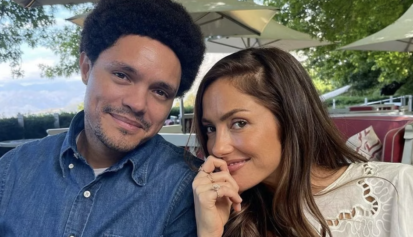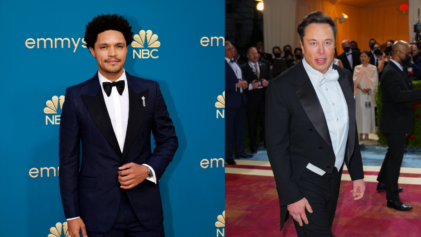On Thursday, South African comedian Trevor Noah made his second appearance as a senior international correspondent on Comedy Central’s The Daily Show with Jon Stewart.
He brought updates on Islamist group Boko Haram and their continued attacks in Nigeria — which were largely overshadowed by news of the Charlie Hebdo attacks in Paris. “Sometimes it just feels like Africa is the Vegas of Islamic terror. What happens in Africa stays in Africa,” he said during his segment.
The 30-year-old comedian from Johannesburg has a huge following in Africa and has done major shows in the U.K.; now, his role on The Daily Show primes him to become a major player in the U.S. comedy scene. He tells All Things Considered host Arun Rath that it’s still sinking in, but he’s enjoying every moment.
For now, he and Stewart have a routine where Stewart plays a clueless American and Noah educates him about news in Africa. He says they’ll probably change the format over time, but for now it works.
“It helps with certain stories because Jon has to ask the questions that maybe people are afraid themselves to ask,” he says. “If he’s willing to take that stance then you open yourself up to an audience where nobody’s going to go, ‘I’m afraid to say I don’t know what Davos is. I’m afraid to say I don’t know who the Boko Haram are.’ … So I guess Jon has been kind enough to offer himself up sacrificially.”
For his first appearance in December, Noah took a risk — starting with a joke that, at first, seemed kind of lame: “I just flew in, and boy, are my arms tired!”
“That was the fun of the joke,” he says. “I could see the disappointment on people’s faces when they thought that that was genuinely the line I was opening with.”
He went on to comment on police brutality, race and poverty in America and Ebola — taking more than a few jabs at American policy. And in his stand-up, he’s known for commentary on South African politics, race, and even AIDS — mixed in with pure silliness.
“What I’ve always said about comedy is if you do it in the right way, you can say anything to anybody because they know where you’re coming from,” he says. “They know it’s not malicious.”
Read More at NPR


